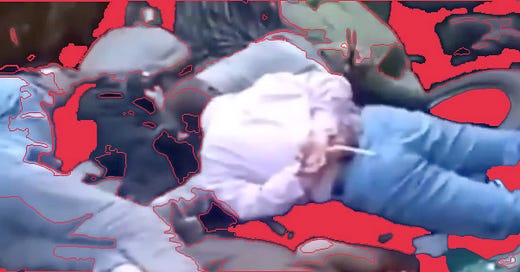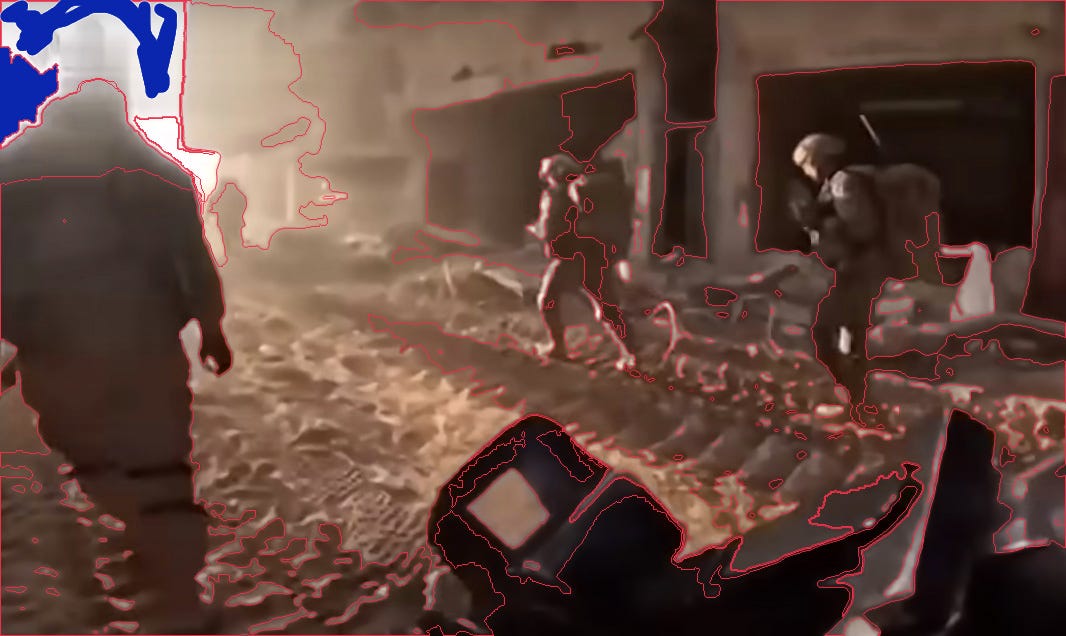On the Eve of 2024
It’s customary, though not terribly wise or prudent, to make predictions at this time of year. 2024 will be, of that one can be certain, the year of the US “election”, which will doubtless be just as ridiculous, absurd and riddled with rigging as the last ones have been.
The move away from even a semblance of democracy has been accelerated by electronic and postal voting, both of which proved such an evil in 2020. In the past: striking voters off the rolls and a whole variety of other shenanigans were preferred. It can be stated, at least with a degree of caution, that roughly two thirds of Americans voted for Trump but got Biden instead. In a similar fashion Bush was foisted upon the Great American Public rather than Kerry or Gore in 2004 and 2000.
The Deep State this time around has pinned all its hopes on the Democrats yet the Republicans are, unhappily, just as bad. In reality, as has been pointed out countless times, America is a one-party state with an A team and a B team. Both parties push essentially the same agenda without any regard for the needs, dreams or wishes of their respective voters; America is a land democratic in name if not nature, much in the same way that the DDR once was.
Ironically all the things that were said of Trump, that he would cause war, erode the power of the Constitution, destroy the economy, came true under Biden, and for all his faults (and they are many, Trump too is a Deep State candidate and was directly responsible for the Genocide by Jab) he proved the lesser of two evils. Had Killary come to power in 2016 we’d doubtlessly have experienced war with Russia long before. The Trump presidency upset the imperial part of the Neocon/Deep State agenda and they’ve been battling to get it back on track ever since.
There are three key goals we know, without any shadow of doubt, that the Global Deep State (governed by the ruling kleptocratic, pedophile Satanist Oligarchy, which is c.8,000 strong) has set itself: radical depopulation in the West (America down to 100m, the UK down to 13m, Germany down to 30m etc. etc.), the introduction of digital currency after a financial meltdown and the notorious Agenda 2030, which is designed to enslave us all.
This is a “revolution from above” (Kerry Bolton) and is facilitated by a “shock doctrine” (Naomi Klein) with the end game being a Satanic dystopia (John Coleman). The aim is to create a world akin to sci-fiction: Mad Max, The Hunger Games, Soylent Green, Logan’s Run, Westworld, Blade Runner, Robocop, Terminator etc. with a global population of roughly 500m (Georgia Guide Stones).
What we don’t know is how effective the Genocide by Jab has actually been. According to OECD statistics: excess deaths in the US in the last two years have been c.651k, in the UK 100k, in Germany 60k and Austria c.4k. How it will continue is anybody’s guess but of one thing we can be certain: the global population will shrink in radical fashion.
The popular reaction against Digital Currency is the great hope of the near future and the Deep State will have great difficulty ramming it down our throats.
The fiction of “Global Warming” (when there will be no snow at all!) is also falling apart but has served well the policy of deindustrializing Europe and in particular Germany. Those who support this crime against humanity must be held to account.
The coming election year will most probably have at least two positive outcomes:
The war against Russia and the Ukraine (where the population has halved) will doubtlessly be wound up and defeat of the West/NATO accepted.
Similarly, the genocide in Gaza will have to end if Genocide Joe will have any chance of avoiding being trounced and humiliated in 2024.
From what I gather half of young Americans (18-24-year-olds) prefer to see a regime of Hamas in Palestine to a Zionist occupied Palestine. This doesn’t bode well for the future of Israel.
How exactly the war is to be actually ended remains unclear.
According to Col McGregor the IDF losses are extremely high: c.3,700 KIA and untold wounded. The genocidal IDF bombing campaign created the ideal conditions for the daring, determined and disciplined Palestinian resistance in much the same way that the bombing of Monte Casino created the optimal conditions for the defenders there. The Israelis, when forced to choose between fighting Hamas or committing genocide, chose the latter.
The IDF seem to be withdrawing from Gaza after having “cleansed” much of the north (according to Max Egan this included shooting Palestinian civilians and burying them in pits in Nazi fashion) and seem to be destroying all the housing there to prevent any hope of return. This is truly set to be Nakba 2.0.
There are even plans to create beach-front holiday homes and new colonies in Gaza, so sick has society become.
This “victory” will be a Pyrrhic one and it’s doubtful if the State of Israel (despite all its nukes) will survive.
Whatever happens in the coming year: we most certainly shan’t be bored!







Yet another exemplary epistle and scholarly Substack submission, from you, Michael, ending, as it does, this execrably evil year of State-succoured savagery, prayed-insidiously-in-(now)-perpetual-asinine-aid of a hasbara-hewn-hypocrisy, and rancid, Russophobic reverie, whos combined, conflagrational chutzpah and deleteriously-disordered denouements, threaten (or should that not read 'contrive' ?) to realize those very allegorical, alternate realities, evoked in your science-fiction end-game analogies, above, the most striking of which (for me at any rate, personally) I would submit, being that of 'Logan's Run' whose now (arguably) prophetic prospectus and planetary panacea, is, palpably, present, in a perverse 'disposal' of diverse and dubious deliberations, discarding one's very DNA, as superfluous to it's cyberspace-continuance of contra-creationist creeds, culminating in captive, circus-like, comatose creatures, conditioned by algorithmic-assists to consume and calcify in carcinogenic capitulation !
On a more concluding, optimistic note of arms-length acclamation, keep your fine and formidably forensic mind, firing on every available cylinder of cerebral conviction, throughout the coming year in 2024, and hopefully, your own and those of others' rare repositories of rectitude, rigo(u)r, and revitalizing raison d'etre, will somehow coalesce to bring about a Brave New World of Due Diligence, Decency, & Dignity, for All Who Hunger for Same, presently.
Jim O'D'.
“The act of killing people was once taken so seriously, Phil Klay writes in Uncertain Ground: Citizenship in an Age of Endless, Invisible War, that after the Battle of Hastings in 1066, a Penitential Ordinance was imposed on Norman knights: ‘Anyone who knows that he killed a man in the great battle must do penance for one year for each man that he killed.’ Klay, a forty-year-old veteran of the war in Iraq, considers such rituals beneficial not only for the psychological health of soldiers but also for their communities, because after a war the traumatized perpetrators ‘must reconstruct a view of faith, society, and ethics that will not merely collapse into the emptiness of the evil they have faced.’ A nation left flailing in the emptiness of evil becomes one in which that evil never ends.”
Whether we are Israelis, Palestinians, Ukrainians, Russians, or citizens of the American empire, we are implicated, directly or by proxy, in perpetual global conflict, where the only true winner is the technology of violence—along with the few who profit by it. In Hansen’s words, the rest of us are “prisoners of that global technological warship that is always on the move.”
How do we say no? How do we jump that warship? As Hansen reminds us,
“The war on terror devastated entire countries, caused the deaths of millions of people, and turned tens of millions into refugees; countless more people were imprisoned, maimed, tortured, or impoverished.”
We might add to that distressing number the 30,177 American soldiers and veterans of the war on terror who have committed suicide over the last 20 years. A soldier quoted in Klay’s Uncertain Ground suggests a cause for such despair when he wonders, “Have I done an evil thing?” [vi]
Are the policy-makers and war-makers similarly troubled? Do they ever have PTSD after the harm they do? Auden’s “Epitaph on a Tyrant” is doubtful on this point. The poem’s last line exemplifies the fatal disconnect between the performative emotions of the powerful and the suffering they either cause or ignore. Whether or not the tyrant weeps, the children go on dying.
Perfection, of a kind, was what he was after,
And the poetry he invented was easy to understand;
He knew human folly like the back of his hand,
And was greatly interested in armies and fleets;
When he laughed, respectable senators burst with laughter,
And when he cried the little children died in the streets. [vii]'
https://jimfriedrich.com/tag/w-h-auden/